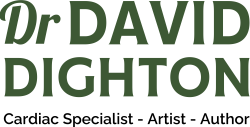





©daviddighton.com 2024




THE NHS:
OUR SICK SACRED COW
The NHS. Our Sick Sacred Cow
Introduction (see here for text)
Chapter 1: The State of UK Medical Practice. A Doctor’s Point of View.
A Corporate Viewpoint
The Current Medical Playing Field. How Efficient is the NHS? What Patients think about the NHS? A Patient’s Lot. Divide and Rule. Medicine as a Machine. Doctors and Nurses as Corporate Beings. Doctor-
A Medical Professional’s Viewpoint
‘Lions led by donkeys?’ Changing Status. Defensive Medicine. Living with Medical Error. Errors and Cultural Difference. The Cultural Challenge. Our Health Divide. Medical Ethics. Timing and Outcome. Action or More Reconnaissance? Disillusioned and Demoralised? NHS Culture and Private Practice Culture. Are There Rogues Among Us? The Current Politics of Compliance. Propagating Knowledge. Whistle-
Chapter 2: The Control of UK Medical Practice
Surviving Regulation. Standardising Medical Practice. Medical Utopia? Who Controls UK Medical Practice? Learning from Wolves. A Conflict of Attitudes. A Brief History of the Bureaucratic Species. Our Medical Regulators. Big Simple Things. The Body Corporate. A Job too Risky? Clinical Risk. Draft Memo to all Medical Bureaucrats. The Politics of Medical Regulation. Corporate Folly. Interfering in the Doctor-
Chapter 3: Future UK Medical Practice
What Defines the Medical Service Cultural Divide? Health Maintenance Organisations (HMOs). Are they the way forward? Medicine and Artificial Intelligence. Paramedical Medicine. Future Algorithms and Common Sense. Some Basic Medical Practice Objectives. Putting Patients First. Basic Objectives for Nurses. Nurses to ‘Bring Back Compassion!’ The Good Old Days! Re-
Epilogue
Glossary
Bibliography
Appendix 1: Me and the GMC / Medical Practitioners Tribunal Service (MPTS)
Appendix 2: Me and the Professional Standards Authority (PSA)
Index
INTRODUCTION
To 'The NHS. Our Sick Sacred Cow'
From 1973, when I first formed the Loughton Clinic (private medical centre), I could sit in my consulting room as a general physician and cardiologist, unhindered by any NHS or government bureaucracy. My first encounter with them came in 2014, when the CQC first asked me to attend an interview. After 41 years of practice without a single complaint from any patient, they wanted to assess my suitability as a director of a medical practice. They asked me how I intended to achieve NHS standards. I offered them a case study as an example of what all NHS patients should expect.
An NHS patient attends his GP with shortness of breath and chest pain while walking. His GP thinks he has angina, but one month will pass before he can see an NHS cardiologist. He sees a cardiologist who organises a stress ECG. One month later he gets the result and further advises the patient. Because the result is abnormal, he suggests a coronary angiogram. An appointment is made was for six weeks' time. The angiogram shows extensive coronary disease, and he advises a coronary bypass. He will then has to wait 2 -
I then told them how I would handle the same patient in my practice. After learning he had chest pain and shortness of breath together, I would do an exercise test on the same day. If found abnormal, I would perform a coronary angiogram within 2-
Why are many NHS patients being short-

| Who Loses Wins |
| The Doctor's Apprentice |
| The NHS. Our Sick Sacred Cow |